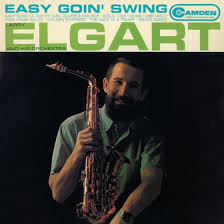
Daily Dose Of Jazz…
Lawrence Joseph Elgart was born on March 20, 1922 in New London, Connecticut and grew up in Pompton Lakes, New Jersey. His mother was a concert pianist and his father also played piano, though not professionally. With his brother Les they attended Pompton Lakes High School.
Both brothers began playing in jazz ensembles in their teens, and young Larry played with jazz musicians such as Charlie Spivak, Woody Herman, Red Norvo, Freddie Slack and Tommy Dorsey. In the mid-1940s, Les and Larry started up their own ensemble, hiring Nelson Riddle, Bill Finegan and Ralph Flanagan to arrange tunes for them. Their ensemble was not successful, and after a few years, they scuttled the band and sold the arrangements they had commissioned to Tommy Dorsey. Both returned to sideman positions in various orchestras.
In 1953, Larry met Charles Albertine and recorded two of his experimental compositions, Impressions of Outer Space and Music for Barefoot Ballerinas. The recordings were not commercially successful but became collector items for fans of avant-garde jazz. With Albertine they put together an ensemble and using precise microphone placements produced what came to be known as the Elgart Sound. Proved to be very commercially successful, throughout the 1950s they enjoyed a run of successful albums and singles on the Columbia label.
Their initial LP, Sophisticated Swing, released in late 1953, was credited to The Les Elgart Orchestra, because, according to Larry, Les was more interested than his brother in fronting the band. In 1954, the Elgarts left their permanent mark on music history in recording Albertine’s Bandstand Boogie, for the legendary television show American Bandstand. In 1955, the band became The Les and Larry Elgart Orchestra, but the brothers split in 1959, each subsequently releasing his own series of albums.
Larry signed with RCA Victor and his 1959 album New Sounds At the Roosevelt was nominated for a Grammy. From 1960 to 1962, he released music on MGM Records. The brothers reunited in 1963 and recorded several more albums until 1967 they again went their separate ways.
In 1981 he departed from the Elgart Sound for jazz funk and fusion genres, producing Flight of the Condor for the RCA Victor. His biggest exposure came in 1982, with the success of Hooked on Swing. The instrumental was a medley of swing jazz hits In the Mood, Cherokee, Don’t Sit Under the Apple Tree, American Patrol, Sing, Sing, Sing, Don’t Be That Way, Little Brown Jug, Opus #1, “ake the A Train, Zing Went the Strings of My Heart and A String of Pearls.
Alto saxophonist and bandleader Larry Elgart, who was a resident of Longboat Key, Florida died on August 29, 2017 at a hospice center in Sarasota, Florida at the age of 95.
More Posts: bandleader,history,instrumental,jazz,music,saxophone
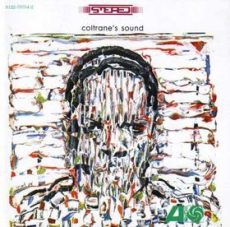
Daily Dose Of Jazz…
Steve Davis was born March 14, 1929 in Philadelphia, Pennsylvania. The youngest of 10 children, he became interested in music as a young teenager and was inspired by his older brother who also played the bass. He was part of a group of young Philadelphia jazz musicians that included saxophonists Benny Golson and John Coltrane. At age 16 he began playing with local big bands and dropped out of high school a year later to pursue a music career.
During the 1940s and 1950s he worked frequently playing with Philly Joe Jones and Jimmy Oliver among others. In 1960, he was briefly a part of the John Coltrane Quartet, before being replaced temporarily by Reggie Workman and permanently by Jimmy Garrison. He was the double bassist on the recordings of My Favorite Things, Coltrane Plays The Blues and Coltrane’s Sound.
He also recorded as a sideman with Chuck and Gap Mangione on Hey Baby! In 1961 and with quartet fellow and brother-in-law McCoy Tyner on the 1963 album Nights of Ballads & Blues. Davis went on to play on several of James Moody’s groups. He worked throughout the 1960s as a freelancer in New York and as a side man appearing on albums by Kenny Dorham and others.
Moving to Rochester, New York in 1970 Steve played bass with the Gap Mangione Trio, Spider Martin Group and other local bands. He was a mentor to younger jazz musicians in Rochester and enjoyed passing on his knowledge. 1980 saw him beginning to suffer from emphysema and returned to Philadelphia.
Bassist Steve Davis, who was also known by his Muslim name Luquman Abdul Syeed, died on August 21, 1987 at the age of 58.
More Posts: bass,history,instrumental,jazz,music
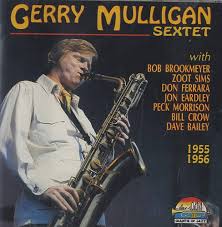
Daily Dose Of Jazz…
Don Ferrara was born on March 10, 1928 in Brooklyn, New York and began playing trumpet at the age of ten, avidly listening to jazz and swing era giants on both radio and records. Roy Eldridge became and remained his single most important influence on his playing. In 1945 he had a brief stint with Jerry Wald’s band, then moved over to George Auld.
Enlisting in the Army in mid-1946, during this time he played in a band with bassist Red Mitchell, drummer Howie Mann and met Warne Marsh. It was through him that he became interested in the work of Lennie Tristano. After his discharge he began studying with Tristano, something he continued to do until the 1960s. During this same period, Don taught and played in the big band assembled by Gene Roland for a Charlie Parker recording session, though he missed the recording session because of a date clash. He then joined Woody Herman’s Third Herd. After a year he returned to New York where he gigged and taught and continued his own studies with Tristano.
In the mid-1950s New York he played and sometimes recorded with various bands, including those of Lee Konitz and Gerry Mulligan. In the early Sixties Ferrara played a regular engagement with Tristano at New York’s Half Note Club and during the rest of the decade continued with his teaching. The early 70s, had him relocating to the west coast and joining Gary Foster’s teaching studio. He continued to live and teach in California through to the 90s, most of his teaching work being conducted at long range through audio cassettes.
Trumpeter Don Ferrara, who was also a skilled and highly individual soloist, died on January 18, 2011 in San Diego, California.
More Posts: history,instrumental,jazz,music,trumpet
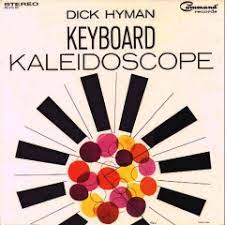
Daily Dose Of Jazz…
Richard Hyman was born in New York City on March 8, 1927 and grew up in suburban Mount Vernon, New York. His older brother, Arthur, owned a jazz record collection and introduced him to the music of Bix Beiderbecke and Art Tatum. Trained classically by his uncle, concert pianist Anton Rovinsky, who taught him touch and a certain amount of repertoire while he pursued Chopin on his own.
Enlisting in the U.S. Army in 1945, Dick was transferred to the U.S. Navy band department. After leaving the Navy he attended Columbia University where he won a piano competition with the prize being 12 free lessons with swing-era pianist Teddy Wilson. It was during this period Hyman fell in love with jazz.
During the 1950s Relax Records released his first two solo piano versions of All the Things You Are and You Couldn’t Be Cuter. Hyman recorded two honky-tonk piano albums under the pseudonym Knuckles O’Toole and recorded more as Willie the Rock Knox and Slugger Ryan.
In the 1950s and early 1960s Dick worked as a studio musician and performed with Tony Bennett, Perry Como, Guy Mitchell, LaVern Baker, Ruth Brown, Mitch Miller and many more. He played with Charlie Parker for Parker’s only film appearance and had a stint as music director for Arthur Godfrey’s television show from 1959 to 1961.
As a composer, arranger, conductor, and pianist he worked on eleven Woody Allen films as well as other films like Moonstruck and Scott Joplin. Hyman composed and performed scores for ballet and dance companies. In the 1960s, Hyman recorded several pop albums on Enoch Light’s Command Records using the Lowrey organ and then the Moog synthesizer.
Between 1970 and 2014 he recorded 112 albums as a leader, sixty-two as a sideman, and arranged four albums for Count Basie, Trigger Alpert and Flip Phillips. He has been a guest performer at jazz festivals and concert venues around the world. In 1995 pianist and composer Dick Hyman moved his wife Julia permanently to Venice, Florida.
More Posts: arranger,bandleader,composer,history,instrumental,jazz,music,piano
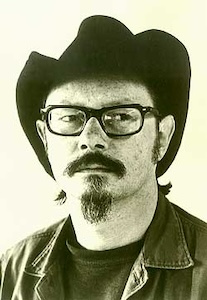
Jazz Poems
LISTENING TO SONNY ROLLINS AT THE FIVE SPOT There will many other nights like this be standing here with someone, some one someone some-one some some some some some some one there will be other songs a-nother fall, another–spring, but there will never be a-noth, noth anoth noth anoth-er noth-er noth-er Other lips that I may kiss but they won’t thrill me like thrill me like like yours used to dream a million dreams but how can they come when there never be a-noth– Paul BlackburnFrom Jazz Poems | Selected and edited by Kevin Young
More Posts: book,classic,collectible,history,jazz,library,poet



